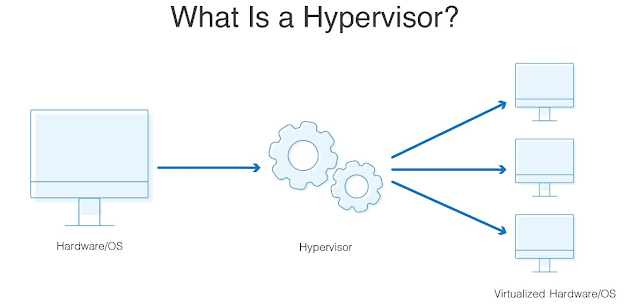Optimizing Your Online Presence: Insights and Strategies for SEO Success.
SEO, or search engine optimization, is the practice of improving your website's visibility and ranking on search engine results pages (SERPs). The goal of SEO is to attract more organic traffic to your website by ranking higher for relevant search terms.
However,
achieving SEO success can be challenging, especially in today's competitive
online landscape. Here are some insights and strategies to help you improve
your SEO and achieve success:
1.
Conduct Keyword Research
Keyword
research is the process of identifying the search terms and phrases that people
use to find information related to your business or industry. By understanding
the keywords that people are searching for, you can optimize your website to rank higher for those terms.
Use keyword
research tools like Google Keyword Planner or Ahrefs to identify relevant
keywords and phrases with high search volume and low competition. Use these
keywords in your website content, meta tags, and URLs to improve your
visibility and relevance to search engines.
2.
Focus on User Experience
User
experience (UX) plays a crucial role in SEO success. Search engines prioritize
websites that provide a positive user experience, such as fast loading times,
easy navigation, and mobile responsiveness.
Make sure
your website is optimized for speed and mobile devices. Use clear and concise
navigation menus to make it easy for users to find the information they need.
Optimize your website structure to make it easy for search engines to crawl and
index your pages.
3.
Create High-Quality Content
Creating
high-quality, informative, and engaging content is one of the most effective
ways to improve your SEO. Search engines prioritize websites that provide value
to users, and high-quality content is one way to demonstrate that value.
Create
content that is relevant to your target audience and provides answers to their
questions or solutions to their problems. Use a variety of content formats,
such as blog posts, videos, infographics, and podcasts, to appeal to different
types of users.
4.
Build High-Quality Backlinks
Backlinks,
or links from other websites to your website, are a crucial factor in SEO
success. Backlinks from high-quality, authoritative websites signal to search
engines that your website is trustworthy and relevant.
To build
high-quality backlinks, create valuable and shareable content that other
websites will want to link to. Reach out to other websites in your industry and
request backlinks. Use tools like Ahrefs or SEMrush to identify opportunities
for backlink building.
5.
Optimize Your On-Page SEO
On-page SEO
refers to the optimization of individual pages on your website to improve their
visibility and relevance to search engines. On-page SEO includes optimizing
your content, URLs, meta tags, headings, and images.
Make sure
to include your target keywords in your page title, URL, and meta description.
Use headings (H1, H2, H3) to break up your content and make it easier to read.
Include alt tags in your images to describe what the image is about and include
your target keywords where appropriate.
6.
Leverage Local SEO
Local SEO
is crucial for businesses that have a physical location or serve a specific
geographic area. Local SEO includes optimizing your website and Google My
Business listing to improve your visibility in local search results.
To improve
your local SEO, make sure to include your business name, address, and phone
number (NAP) on your website and Google My Business listing. Use relevant
keywords and phrases in your content that relate to your location. Encourage
customers to leave reviews on your Google My Business listing to improve your
credibility and visibility.
7.
Monitor Your SEO Performance
Monitoring
your SEO performance is essential to understanding the impact of your SEO
efforts and identifying areas for improvement. Use tools like Google Analytics
and Google Search Console to track your website traffic, search rankings, and
other important metrics.
Regularly
review your website analytics to identify trends and areas for improvement.
Look for keywords and pages that are driving the most traffic and engagement,
and optimize those pages further to improve their performance. Use data to make
informed decisions about your SEO strategy and adjust your tactics as needed.
8.
Stay Up-to-Date with SEO Trends and Best Practices
SEO is
constantly evolving, and staying up-to-date with the latest trends and best
practices is essential for success. Stay informed by reading industry blogs and
publications, attending conferences and webinars, and following SEO experts on
social media.
Some key
SEO trends and best practices to keep in mind include:
- The increasing
importance of voice search and conversational keywords
- The need for website
security (HTTPS) and mobile optimization
- The growing importance
of user-generated content and social proof
- The use of structured
data and rich snippets to improve search results
- The continued importance of high-quality content and backlinks
Do's:
- Conduct keyword research: Research relevant keywords and
phrases to target in your content. Use tools like Google Keyword Planner
or SEMrush to find high volume and low competition keywords.
- Create high-quality, original content: Create content that
provides value to your audience and incorporates your target keywords
naturally. Avoid duplicate content or plagiarism.
- Optimize your website's structure and meta tags: Optimize your
website's meta tags, including title tags and meta descriptions. Ensure
that your website's structure is clean, well-organized, and easy to
navigate.
- Build high-quality backlinks: Build high-quality backlinks from
other authoritative websites in your industry. Avoid buying links or
engaging in any black-hat SEO tactics.
- Monitor your website's performance: Use tools like Google
Analytics to monitor your website's performance and analytics. Use this
information to identify areas for improvement and adjust your SEO strategy
accordingly.
Don'ts:
- Don't engage in keyword stuffing or other black-hat SEO tactics:
Keyword stuffing or other black-hat SEO tactics violate search engine
guidelines and can result in penalties. Avoid tactics like cloaking,
doorway pages, or hidden text.
- Don't use duplicate content or plagiarize content: Duplicate
content or plagiarized content can harm your website's ranking and
credibility.
- Don't ignore website speed and mobile optimization: Website
speed and mobile optimization are important factors that can impact user
experience and search engine ranking. Ensure that your website is
optimized for speed and mobile devices.
- Don't neglect on-page SEO factors: On-page SEO factors like
internal linking, alt tags for images, and header tags are important for
improving search engine visibility.
- Don't ignore social media and other digital marketing channels:
Social media and other digital marketing channels can help improve your
website's visibility and drive traffic to your site. Use social media
platforms like Facebook, Twitter, and Instagram to engage with your
audience and promote your content.
The
Business Benefits of SEO: Why Your Company Can't Afford to Ignore Search Engine
Optimization
SEO is important for businesses because it
can help improve their online visibility, drive more traffic to their website,
and increase their revenue. Here are some reasons why SEO is important for
businesses:
- Increased online
visibility: By optimizing your website for
search engines, you can improve your online visibility and make it easier
for potential customers to find your business online.
- More targeted
traffic: SEO can help you attract more
targeted traffic to your website by optimizing your content for relevant
keywords and phrases. This means that the people who visit your website
are more likely to be interested in your products or services.
- Improved user
experience: SEO can also improve the user
experience on your website by making it more user-friendly and easier to
navigate. This can lead to higher engagement, lower bounce rates, and more
conversions.
- Better ROI: Compared to other forms of online marketing, such as paid
advertising, SEO can provide a better return on investment over the long
term. Once you have optimized your website for search engines, you can
continue to benefit from increased traffic and visibility without having to
pay for ads.
- Competitive
advantage: SEO can also give your business a
competitive advantage by helping you stand out from your competitors
online. By optimizing your website for search engines, you can increase
your visibility and attract more customers, which can help you grow your
business over time.
Some common SEO tools that are widely used by SEO professionals and website owners:
Google Analytics: This is a free tool from Google that allows you to track and analyze website traffic, user behavior, and other important metrics.






Comments
Post a Comment